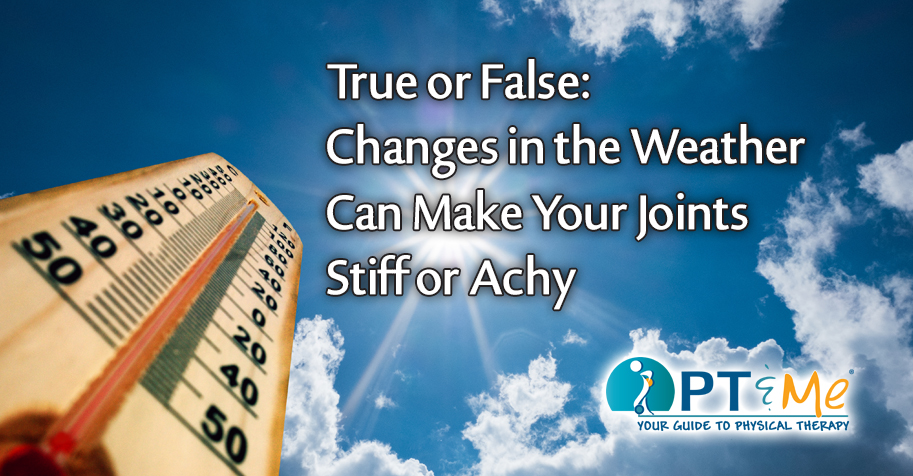
For many people, the flare-up of an arthritic knee or shoulder appears to signal a change in the weather—usually hinting that a storm is imminent.
The belief that achy joints accompany a weather change is so widespread, in fact, that it has just about been accepted as reality. Many doctors listen to patients complain that they experience stiff or aching joints before, during, or after changes in temperature, barometric pressure, or humidity.
Yet, in spite of the widespread belief in a connection between aches and pains and inclement weather, medical researchers have come up with little evidence to support it.
Evidence for the Health Claim
Changes in the weather such as barometric pressure, humidity, and temperature could theoretically affect the synovial fluid that lines and lubricates the joints if, for example, they had a chemical effect on the fluid which somehow increased inflammation (which causes pain). However, there is no conclusive evidence that supports this theory.
Since at least the mid-1800s, a number of medical, and so-called bio-meteorologic research studies have been carried out in an effort to establish a connection between health and changing weather conditions.
The results of these studies have been varied. Based primarily on a compilation of patient anecdotes (reports of arthritis sufferers, for instance), increased barometric pressure (in fair weather conditions) has been associated with increased joint pain. Conversely, others studies have shown a relationship between increased joint pain and decreased barometric pressure (in stormier weather). Still other studies have suggested that changing weather conditions can cause immediate pain in some patients and delayed pain in others.

Evidence Against the Health Claim
It is important to note that because most studies on this subject have been based on anecdotal reports rather than carefully designed observational studies, their conclusions don’t constitute reliable scientific evidence. Furthermore, many doctors claim that the wide variety of arthritic conditions and sheer complexity of atmospheric variability makes coming up with meaningful connections between joint pain and weather conditions next to impossible.
There is also a psychological aspect to this belief. What are the chances that the connection between health and the weather is simply coincidental? Is it possible that arthritis sufferers link their stiff and achy joints to changes in the weather as a way of explaining an otherwise mysterious exacerbation of their condition? Some doctors suggest that patients who observe weather conditions when they experience pain may pay little or no attention to the weather when they don’t have any pain.
Furthermore, there is no definitive evidence that moving to a warmer or drier climate provides a cure for aching joints. Some doctors report that many patients claim that the pain disappears for a while, only to return a few months later.
REFERENCES:
Aches and Pains Index. UK Weather Channel Interactive Web site. Available at http://uk.weather.com/activities/health/achesandpains/achesandpainsindex.html. Accessed July 25, 2006.
Cold Weather Can Cause More Aches and Pains for Arthritis Sufferers. Marshall University Orthopaedics Web site. Available at http://musom.marshall.edu/medctr/orthopaedics/cold weather.asp. Accessed July 25, 2006
Shmerling RH. Whether Weather Matters For Arthritis. Available at http://www.intelihealth.com/IH/ihtIH/8799/9273/35323/341624.html?d=dmtHMSContent. Accessed July 25, 2006.
Weather and Joint Pain. Any Connection? Mayo Clinic Web site. Available at http://www.mayoclinic.com/health/joint-pain/AN00102. Accessed July 25, 2006.
Weather and Our Physical Health. BBC News Web site. Available at http://www.bbc.co.uk/weather/weatherwise/living/effects/. Accessed July 25, 2006.
EBSCO Information Services is fully accredited by URAC. URAC is an independent, nonprofit health care accrediting organization dedicated to promoting health care quality through accreditation, certification and commendation.

